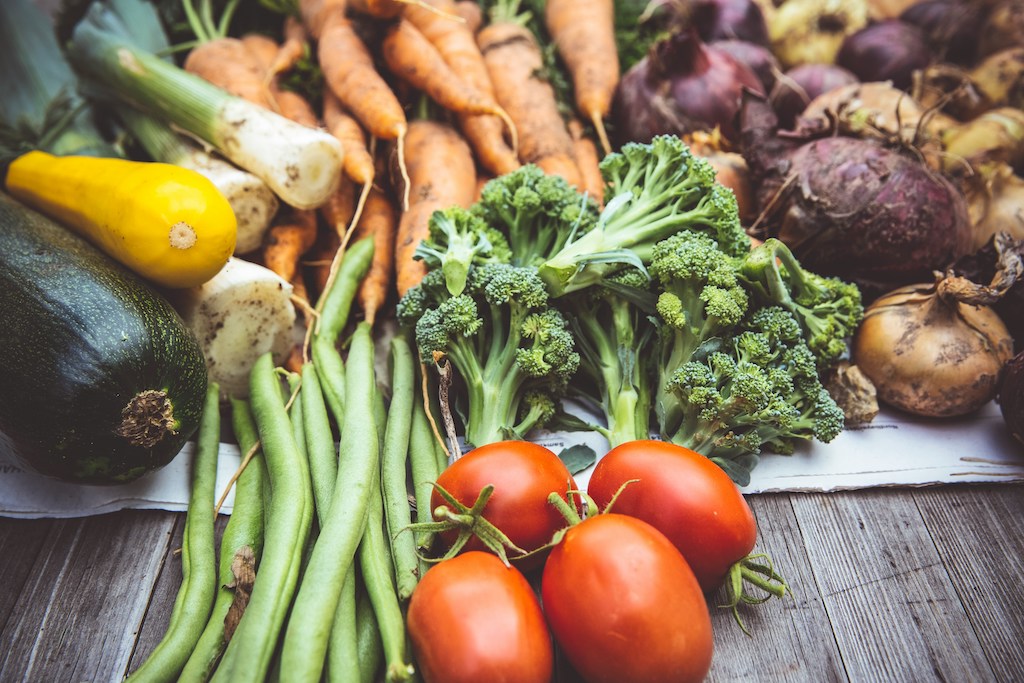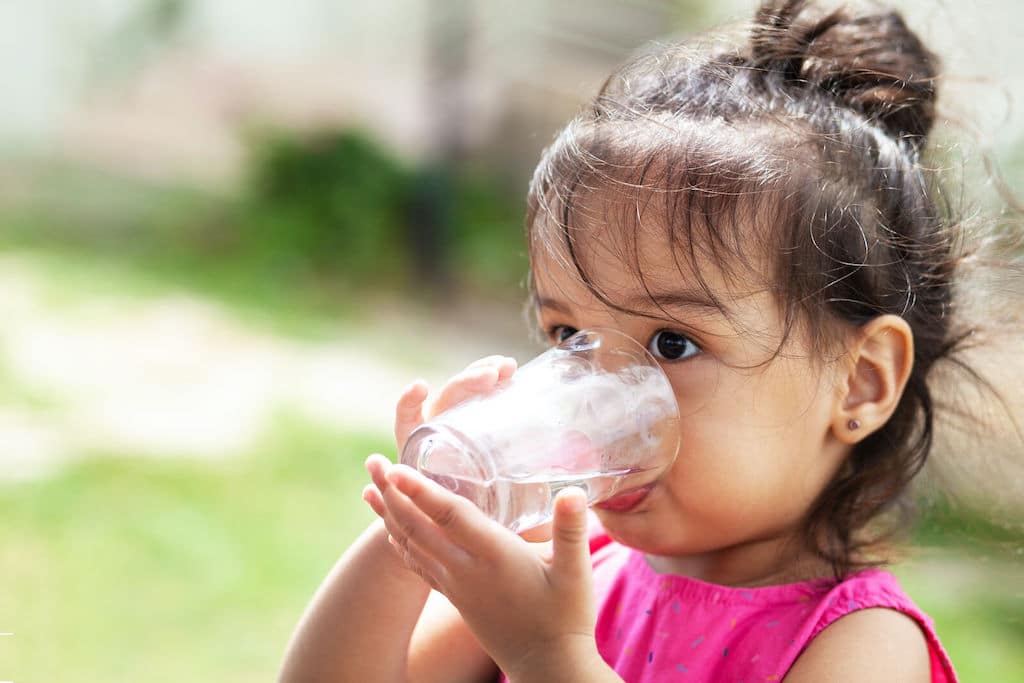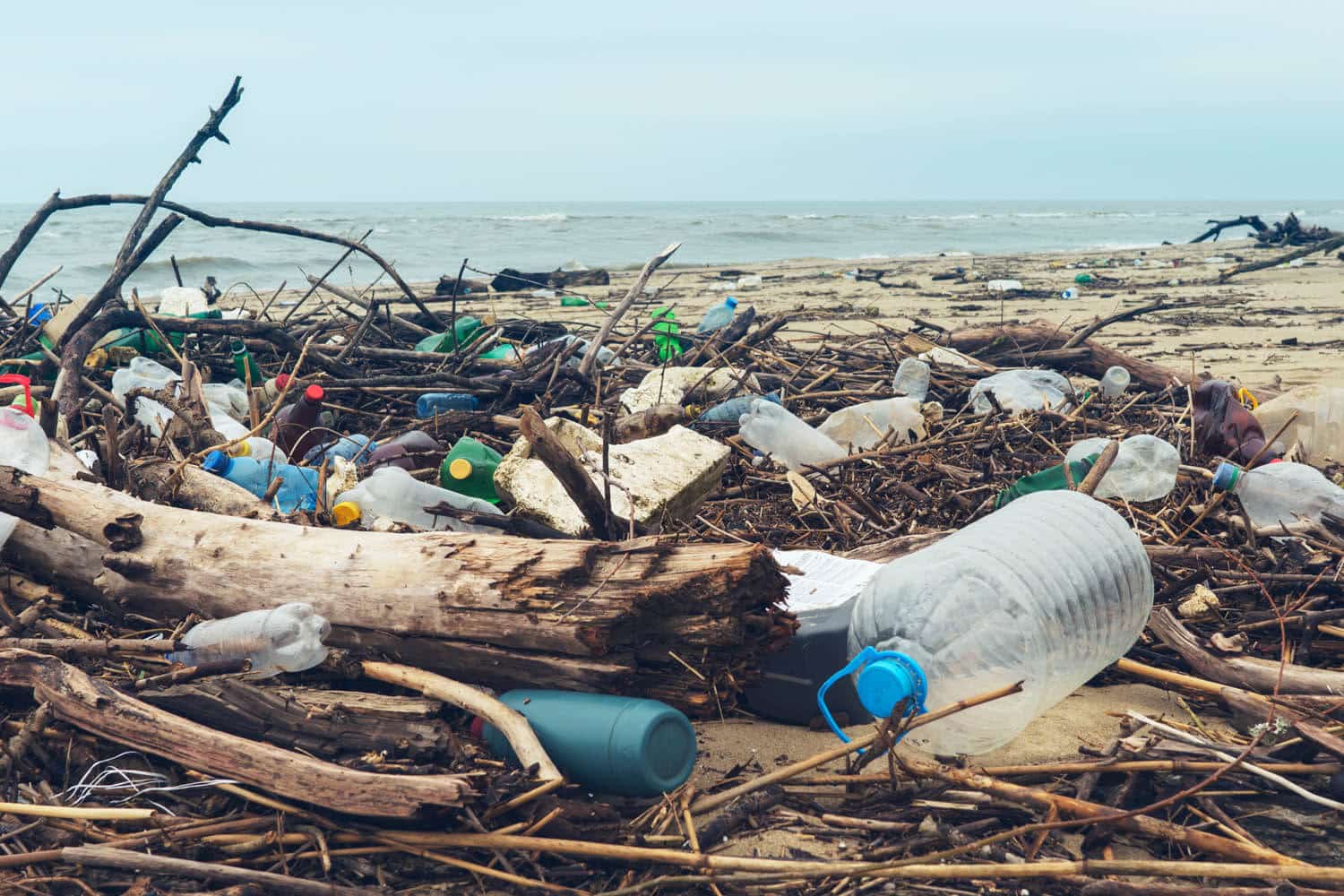It’s Climate Week in New York City, and thousands of people have come together to highlight the connections between plastics, fossil fuels, and the climate crisis. With hundreds of events planned around the United Nations (UN) General Assembly’s annual meeting on pressing global issues, it’s a busy week of climate-focused discussions and actions around NYC.
The week kicked off Sunday with the March to End Fossil Fuels, which was attended by at least an estimated 50,000 to 75,000 people, including Plastic Pollution Coalition Members, Youth Ambassadors, Staff, Notables, and other allies. At the March, groups and individuals mobilized to call on the U.S. and other governments, as well as corporations, investors, and other entities to stop prioritizing fossil fuel and plastic industry profits over people and the planet.
Understanding the Connections
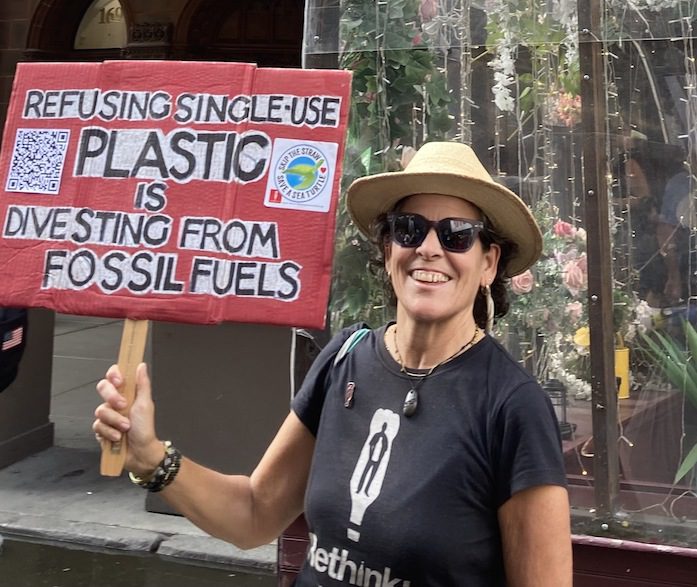
Identifying—and acting on—the connections is important: As pollutants build up in the environment and our bodies, and the planet continues to warm, it is growing increasingly urgent to address the plastic pollution and the climate crises together.
The facts are that:
- Ninety-nine percent of all plastics are made from petrochemicals derived from fossil fuels—gas, oil, and coal. Plastics help drive the climate crisis.
- Despite the urgent need to cut our reliance on fossil fuels, the plastics and petrochemical industries plan to triple plastics production by 2060—threatening our chances of keeping global temperature rise below the critical 1.5-degree Celsius threshold.
- By 2050, plastic production and disposal could generate greenhouse-gas emissions equivalent to 615 coal plants annually and use up to 13% of Earth’s remaining carbon budget.
- Microplastics and nanoplastics may be interfering with the ocean’s ability to absorb and sequester carbon, Earth’s biggest natural carbon sink.
- Plastic pollution contributes to nine of the 17 UN Sustainable Development Goals (SDGs): 3, 6, 9, 11–15, and 17. Meeting these SDGs can support building a healthier, more just, and more sustainable world for all people.
Scientists, Indigenous knowledge holders, and other experts have emphasized that plastic pollution must be stopped at its source. This means implementing enforceable regulations that require industries dealing in fossil fuels, petrochemicals, and plastics to turn off their taps. A major (at least 75%) reduction of plastics production will help us avert the worst outcomes of the climate crisis, which has already caused significant and irreversible damage to Earth and human communities.
Currently, more than 460 million metric tons of new plastic are produced globally each year, and that number is increasing year after year. More than 10 billion metric tons of plastic have been produced globally to date, and plastic production has increased by more than 18,300 percent in the last 65 years.
UN Plastics Treaty “Zero Draft” is Encouraging—But Misses the Mark on Plastics’ Climate Connections
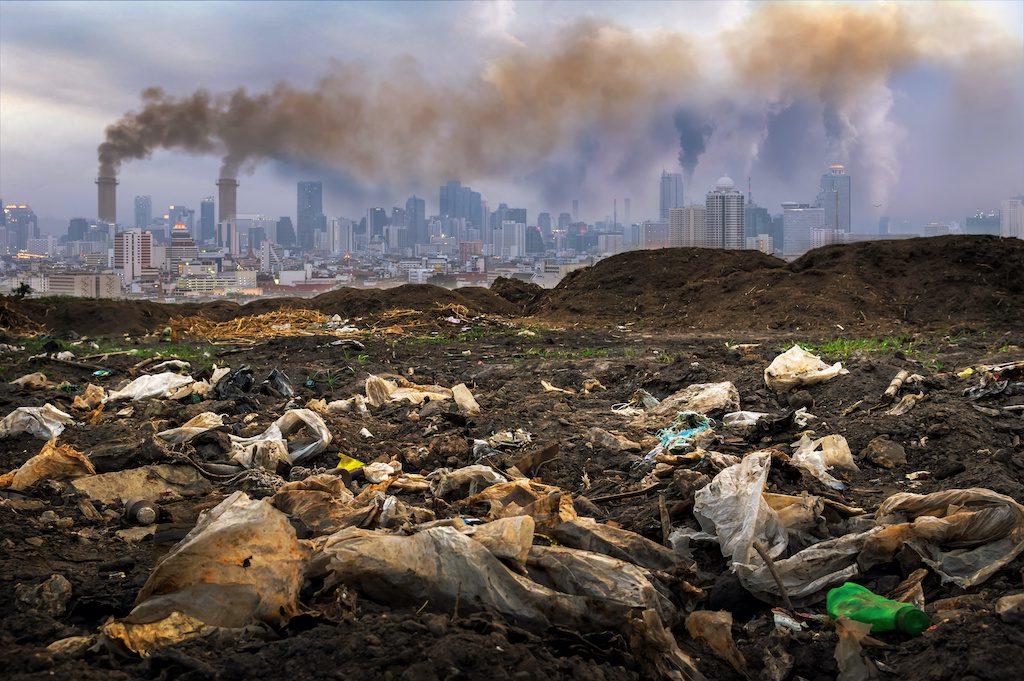
The UN Environment Programme, which is Chair of the Intergovernmental Negotiating Committee (INC) on Plastic Pollution, released a Zero Draft for a UN Plastics Treaty on September 4, 2023. The UN’s Zero Draft importantly lays out the earliest structure and content for a Plastics Treaty to be shaped during the next three negotiating sessions, which are set to wrap up at the end of 2024, when a Treaty should be agreed. Activists and advocates working to end plastic pollution and protect human and environmental health say the UN Plastics Treaty “Zero Draft” is encouraging—but misses the mark on plastics’ climate connections and other concerns.
The clear connection between plastics, fossil fuels, and the climate crisis which threaten human and planetary health is one of the biggest critical components now lacking from the Zero Draft. This connection must be acknowledged in the UN Plastic Treaty, accompanied by a plan for addressing it. As mentioned earlier, solving the plastic pollution and climate crises can help the UN meet its SDGs.
The UN Plastics Treaty must focus on stopping plastic pollution at the source by seriously curbing fossil fuel and plastic production. It cannot leave opportunities for industry interests to continue driving the climate crisis and harming people and the planet.
— Jen Fela, Vice President, Programs & Communications, Plastic Pollution Coalition
With the third Intergovernmental Negotiating Committee (INC-3) upcoming this November in Nairobi, Kenya, where parties will negotiate the Zero Draft, it’s important to understand what the document currently does and does not cover, what concerns need to be addressed, and why plastics and climate must be identified as urgent, interlinked planetary crises.
Understanding the Zero Draft
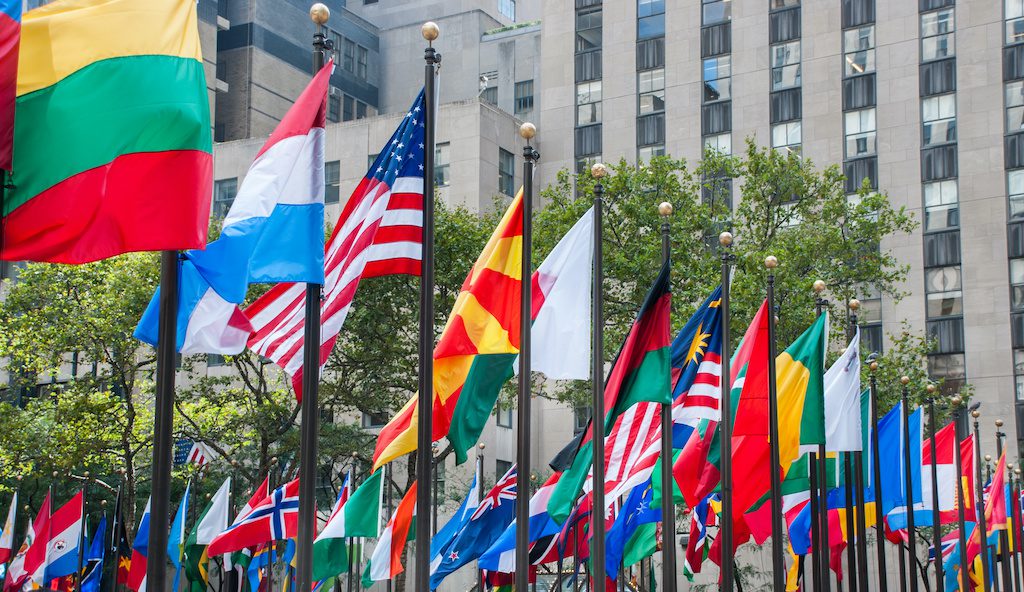
In May 2023, the UN outlined its suggested roadmap forward in drafting a Plastics Treaty in its May 2023 “Turning Off the Tap” report. Unfortunately, the low-ambition report focuses on “turning off the tap” in name only, as it problematically centers business-friendly false solutions allowing for plastic production to continue to ramp up. Instead of prioritizing the health of people and the planet by committing to ending plastic production, it continues to support profiting the harmful fossil fuel and plastics industries.
The Zero Draft does importantly identify a reduction of plastic production as a necessary aspect of the treaty. And it offers a few options for cutting back production, either by requiring countries to set mandatory reduction levels or by setting one global reduction target. Targeted reduction levels have not been established, but they could potentially be achieved by banning specific, easily avoided single-use plastic items and intentionally added microplastics (like microbeads), eliminating subsidies for producing plastic, and/or tapping into market-based options, such as a “plastic tax” that would disincentivize plastic production and use.
Notably, the Zero Draft proposes the establishment of targets for “reuse, repair, repurposing, and refurbishment” of plastic products. While these tenets are necessary for minimizing wastefulness, it’s important that systems incentivize and support these tenets are built plastic-free. All plastic products shed tiny plastic particles that pollute the Earth, wildlife, plants, and our bodies and contain toxic chemicals that are linked to serious health impacts like cancer, immune system problems, and fertility and reproductive issues. Plastic-free materials, while they do still affect people and the planet, are less toxic and are far more reusable than plastics—reducing their total impacts. Overall, we need to build systems that meet local needs and support us having healthy lives and environments. Consumerism-based societies must consume far less.
Reflecting the interests of industries and industry representatives’ outsized presence at the treaty negotiations, recycling—including harmful “advanced recycling,” cleanup, and waste management are a focus of the Zero Draft. However, plastic is not designed to be recycled, and recycling plastic only magnifies and transfers toxic chemicals. It’s been widely recognized that such “downstream” solutions are not sufficient—and in fact they are a form of industry greenwashing that problematically puts the onus for dealing with plastic pollution on the public and perpetuates plastic production while delaying real solutions. The draft also fails address and attempt to rectify the longstanding injustices, pollution, and harm caused by the fossil fuel and plastic industries to people and the planet.
With an influential first step by recognizing in the zero draft the consideration of children and youth—the largest world population and one of the rights-holders group of the treaty process—the negotiating parties have now the power to define the treaty’s effectiveness to current and future generations. Is up to them to determine whether we will have a strong treaty, taking into consideration an intergenerational equity approach with respect to human rights, or whether the process will result in a weak text full of loopholes that will allow to perpetuate a compromised future with irreversible damage to human health, our wildlife and our ecosystem.
— Rafael Eudes, Zero Waste Alliance Brazil, BFFP Youth Ambassador (Brazil)
We must connect plastics, fossil fuels, and the climate crisis in order to move forward with solutions that can allow us to secure a livable future on Earth. The fossil fuel and plastic industries—and those who have supported and invested in these industries—must be held accountable for the harm they have caused. These industries are best replaced by local plastic-free systems of reuse, refill, repair, share, and regeneration. These new, healthier systems must be built in a just, equitable manner. The Earth must be remediated, and communities protected from pollution and injustice.
Take Action
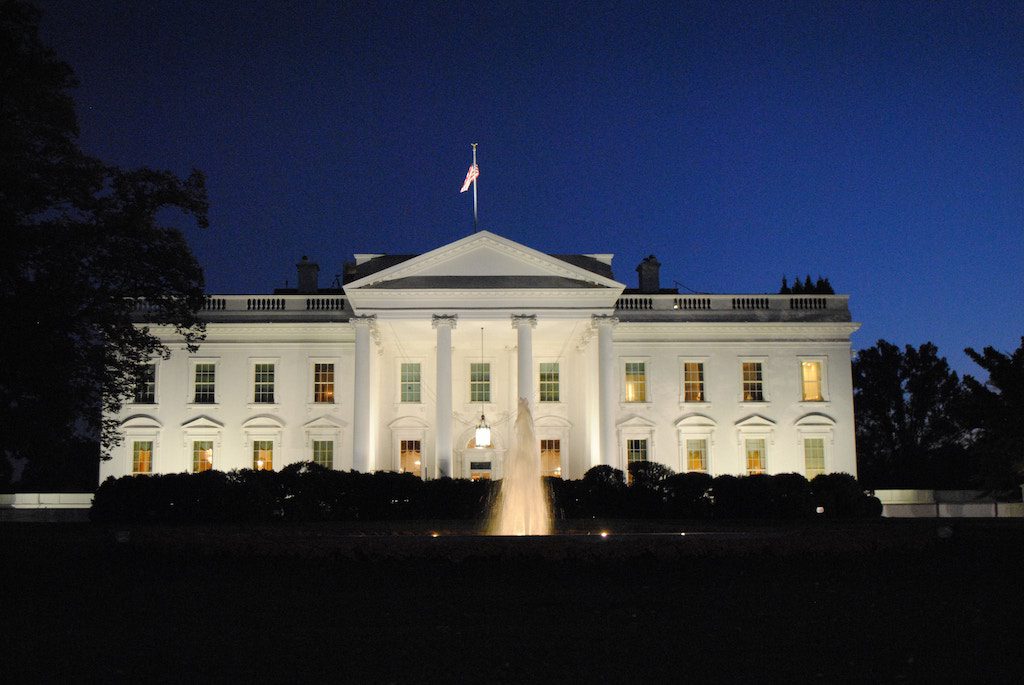
During the second session of the Intergovernmental Negotiating Committee (INC-2), which wrapped up in Paris, France, in June 2023, negotiators mandated creation of a Zero Draft, the earliest iterations of a legally binding instrument to end plastic pollution. As parties prepare to meet in Nairobi, Kenya, in November, it’s important to keep pushing for key concerns to be addressed, and for the UN Plastics Treaty to meet the needs of people and the planet. The Treaty is expected to be finalized by the end of 2024, and adopted in 2025.
Now is the time to push parties to take a strong stance on UN Plastics Treaty negotiations.
Tell the U.S. Government: Take a Stronger Stance on the Global Plastics Treaty
Tell World Leaders We Need a Strong Global Plastics Treaty

